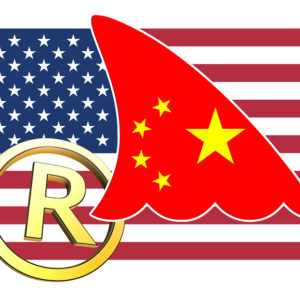One can hardly overstate the importance of the Regional Comprehensive Economic Partnership (RCEP) just signed by China and 14 other nations, mostly in Asia, including the 10 members of the Association of Southeast Asian Nations, plus South Korea and Japan. (The other two signatories, Australia and New Zealand, are in the same hemisphere but, heaven forbid, would never identify as “Asian.”)
The Chinese have got to be delighted with President Donald Trump’s absurd decision, first thing after his inauguration on January 20, 2017, to nix U.S. membership in the Trans-Pacific Partnership.
With RCEP, China has formed a bulwark against U.S. business in the region. India — at odds with China in clashes on its northern frontiers — having cast its lot with the U.S., did not sign on, but that omission only deepens the ominous nature of a pact that will certainly have a bearing on who wins out militarily as well as commercially.
Not least among the issues that gives China a strong hand in the great game for regional leadership is that China controls a stockpile of the minerals needed to make stuff that most of us take for granted.
These include those handy little mobile phones that take too much of our waking time as well as the motor vehicles that we count on for survival.
“No new phone, tablet, car, or satellite transferring your data at lightning speed can be made without certain minerals and metals that are buried in a surprisingly small number of countries,” the journal Foreign Policy tells us. “Chinese firms have locked up supplies of these minerals and metals with a combination of state-directed investment and state-backed capital, making long-term strategic plays, sometimes at a loss.”
The significance of Chinese control over these materials, for which we’re told “few commonly available substitutes are available,” assumes alarming proportions with China taking the lead in a supposedly free trade pact for its own benefit and that of the 14 other signatories.
Granted, RCEP is loosely written, doesn’t cover everything and won’t take effect for another couple of years, but that’s not much time for President-elect Joe Biden to undo Trump’s stupidity in jettisoning U.S. leadership of TPP.
In fact, the Biden team may not be able to resurrect a U.S. role in TPP, whose 11 member countries had to negotiate all over again after the U.S. bailed, but the U.S. does have to look for multilateral trading agreements as a foil to China.
Seven of the TPP members, including the Southeast Asian nations of Brunei, Singapore, Malaysia and Vietnam, plus Japan, Australia and New Zealand, are members of both TPP and RCEP. South Korea was thinking about joining but, since it had free trade deals with the U.S. and others, postponed the idea.
The pact does have one thing going that RCEP does not. Befitting its trans-Pacific character, Canada, Mexico, Chile and Peru also are members, and other South American nations might have jumped in had the U.S. not jumped out.
China’s grip on much needed raw materials adds urgency for the U.S. to play catch-up not only after betraying TPP but also after withdrawing this month from the Paris Climate Accord. Trump thought the accord was unfair to the U.S., second only to China in emission of greenhouse gases, but guess what.
The World Bank cites demand for a raft of minerals, some produced mostly in China, as needed for the technology of clean-air alternatives, including wind, solar and geothermal power. Moreover, the bank predicts, demand will increase five times by mid-century.
Trump scoffed at all those ways of producing energy as a substitute for pollutants like oil and gas, but there was a time after the first motorized vehicles hit the road in the U.S. — well over a century ago — that crowds taunted: “Get a horse.”
Riccardo Puliti, World Bank global director for energy and extractive industries, believes COVID-19 makes the commitment of governments and companies “to climate-smart practices more important than ever before.”
Again, China, desperate to curb its own polluted air, may control the future of clean energy by controlling who gets its natural resources. That’s all the more reason for Biden to undo two of the dumber mistakes of the Trump presidency and get back on board with a form of TPP as well as the Climate Accord. Trump was guilty of a lot of other offenses as president, but his rejection of these two pacts ranks among the worst.
It’s time to make up for lost time.

